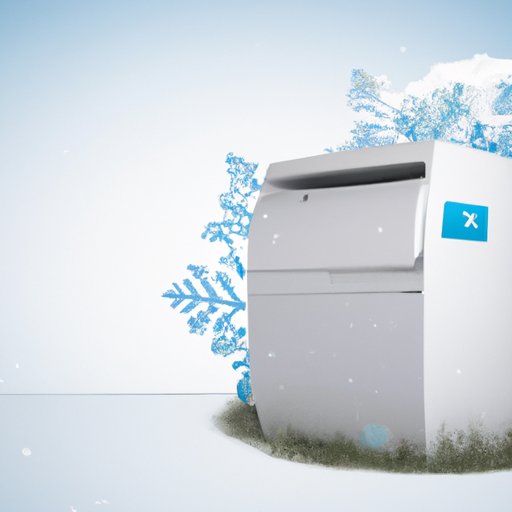I. Introduction
When the winter months roll around, many homeowners start to think about how they will keep their homes warm and comfortable. Heat pumps are a popular choice for many because of their energy efficiency and cost-effectiveness. However, it’s important to understand how heat pumps work in winter to get the most out of them.
In this article, we’ll cover the basics of how heat pumps work, step-by-step guides to their functions in winter, cost analysis, user experiences, technical analysis, and comparisons with other heating systems.
II. Step-by-Step Guide
Heat pumps work by transferring heat from the outside air to the inside of a building, rather than generating heat directly like a traditional furnace. In the winter, heat pumps operate in reverse to extract heat from the outdoor air and pump it inside where it warms the air in a home.
The step-by-step process of how a heat pump works in winter involves cycling refrigerant between evaporator and condenser coils to absorb and release heat and employing a defrost mode to remove ice buildup. When a heat pump goes into defrost mode, it reverses the flow of refrigerant to melt any ice that accumulates outside. There is also a backup heating system which engages when outdoor conditions are too cold.
Compared to traditional heating systems, heat pumps are more energy efficient and less expensive to operate. However, they rely on electricity to run, which can be costly depending on location and utility rates.
III. Cost Analysis
Heat pumps are highly energy efficient, allowing homeowners to save on utility bills in the long term. By transferring heat instead of creating it, they generally require less energy to operate than traditional heating systems. Over the years, this can add up to a significant amount of money saved.
For example, a homeowner who selects a heat pump may save several hundred dollars per year on heating costs compared to a traditional furnace system. Over the course of several years, this can result in thousands of dollars saved.
IV. User Experiences
Many homeowners have installed heat pumps in their homes and have experienced their benefits firsthand. According to various users, heat pumps work effectively in cold temperatures and efficiently heat up homes. Although there may be some issues faced due to defrost mode, consistent maintenance helps overcome these issues.
Users also enjoy the added benefits of humidity control and improved air quality provided by heat pumps.
V. Technical Analysis
At its core, a heat pump works based on the principles of thermodynamics. The system uses a small amount of electricity to pump refrigerant and transfer heat between the inside and outside of a home.
Even in sub-zero temperatures, heat pumps work effectively due to advanced technology and optimal insulation. When temperatures drop, the outdoor coil transfers heat into the refrigerant, which then pumps upstairs into the home.
There are several misconceptions about heat pumps, including that they aren’t effective in cold weather. This is false – modern heat pumps have heating capacity down to -30°C.
VI. Comparison Article
When considering heat pumps, it’s essential to compare their effectiveness to other heating systems such as traditional furnaces, electric heaters, and gas heating systems.
Compared to traditional systems, heat pumps provide an energy-efficient and cost-effective heating solution. In contrast, gas systems are less energy-efficient compared to heat pumps, while electric heaters are more expensive to run in the long-term.
While heat pumps are efficient and cost-effective, they can be less effective at heating large spaces quickly. Still, proper maintenance and insulation can help overcome this issue.
VII. Conclusion
Heat pumps are an excellent heating solution for winter, providing a sustainable and eco-friendly option for homeowners. Understanding how they function, their energy efficiency, and their ability to withstand cold temperatures are all critical factors to consider when selecting a heating system.
By selecting a heat pump, homeowners can save money in the long run while enjoying the added benefits of humidity control and improved air quality.
Share your experiences or questions about heat pumps in the comments section below.
(Note: Is this article not meeting your expectations? Do you have knowledge or insights to share? Unlock new opportunities and expand your reach by joining our authors team. Click Registration to join us and share your expertise with our readers.)
